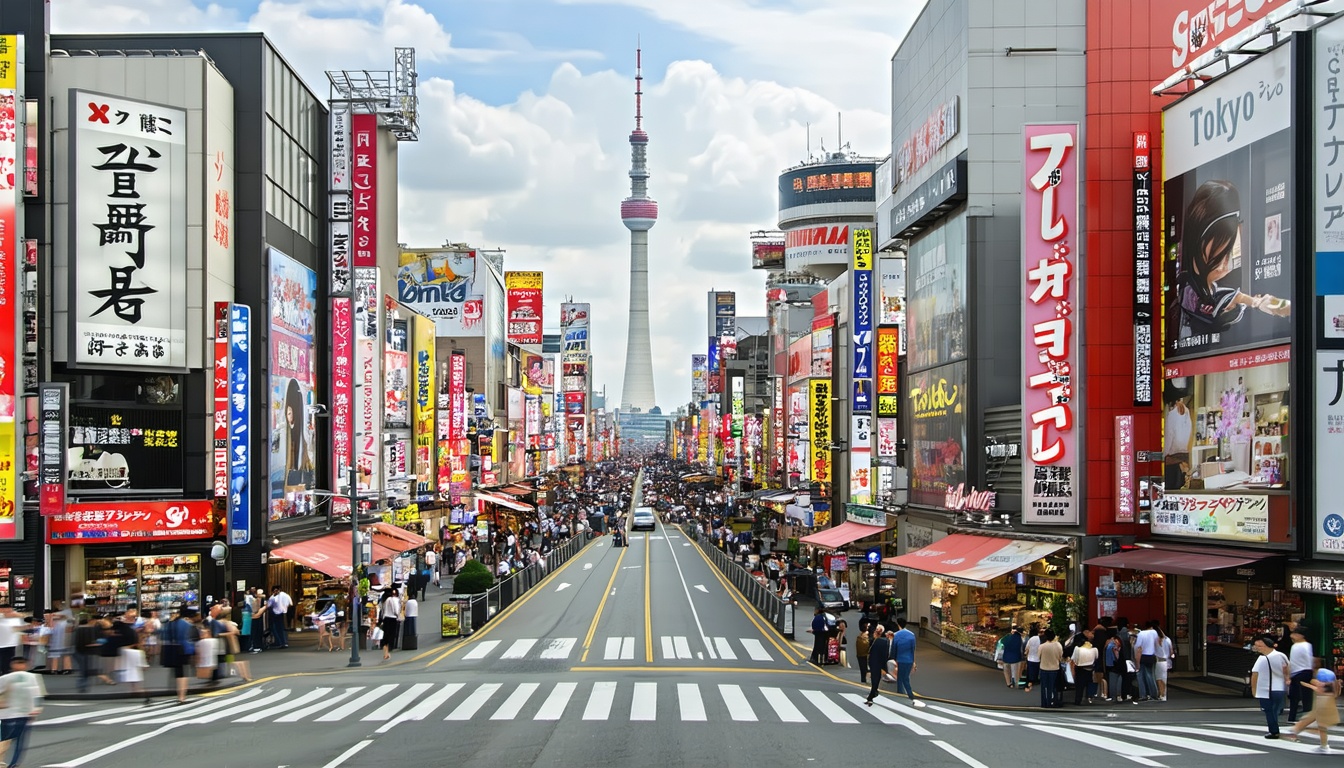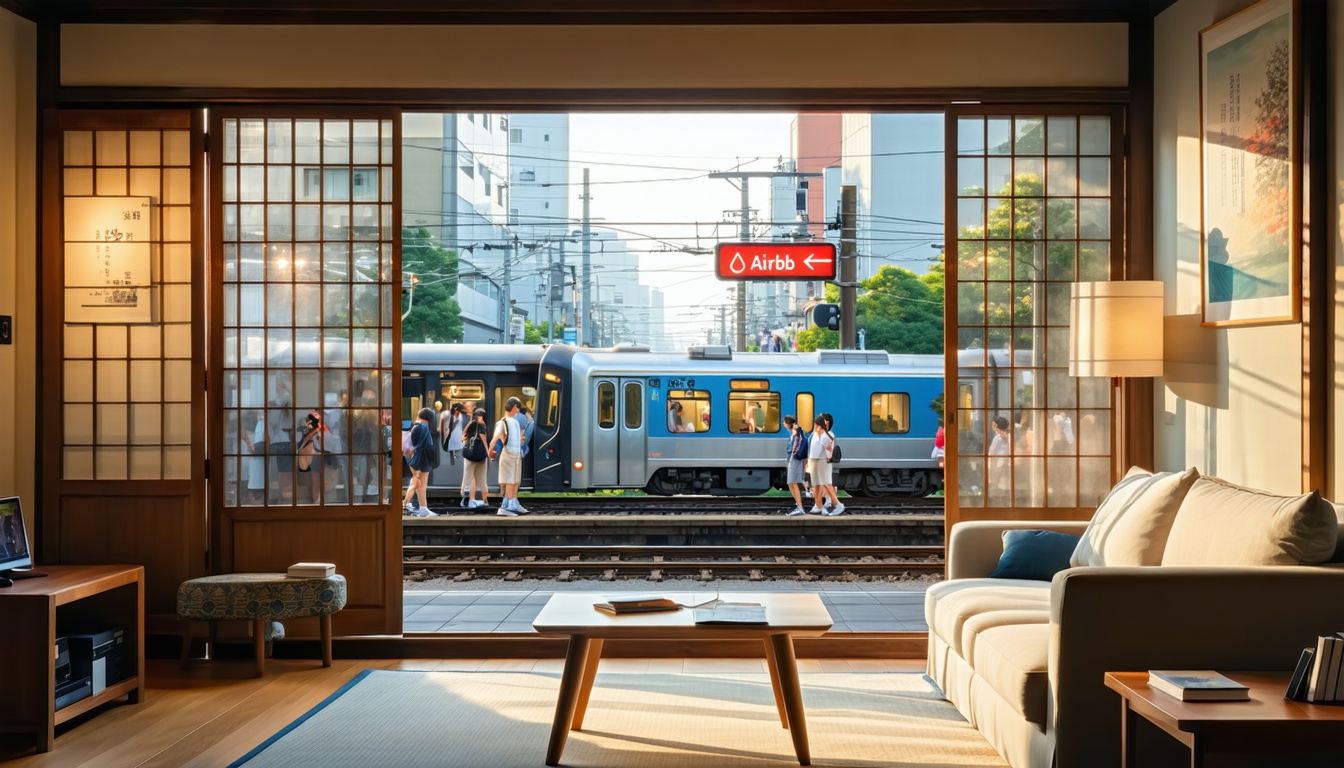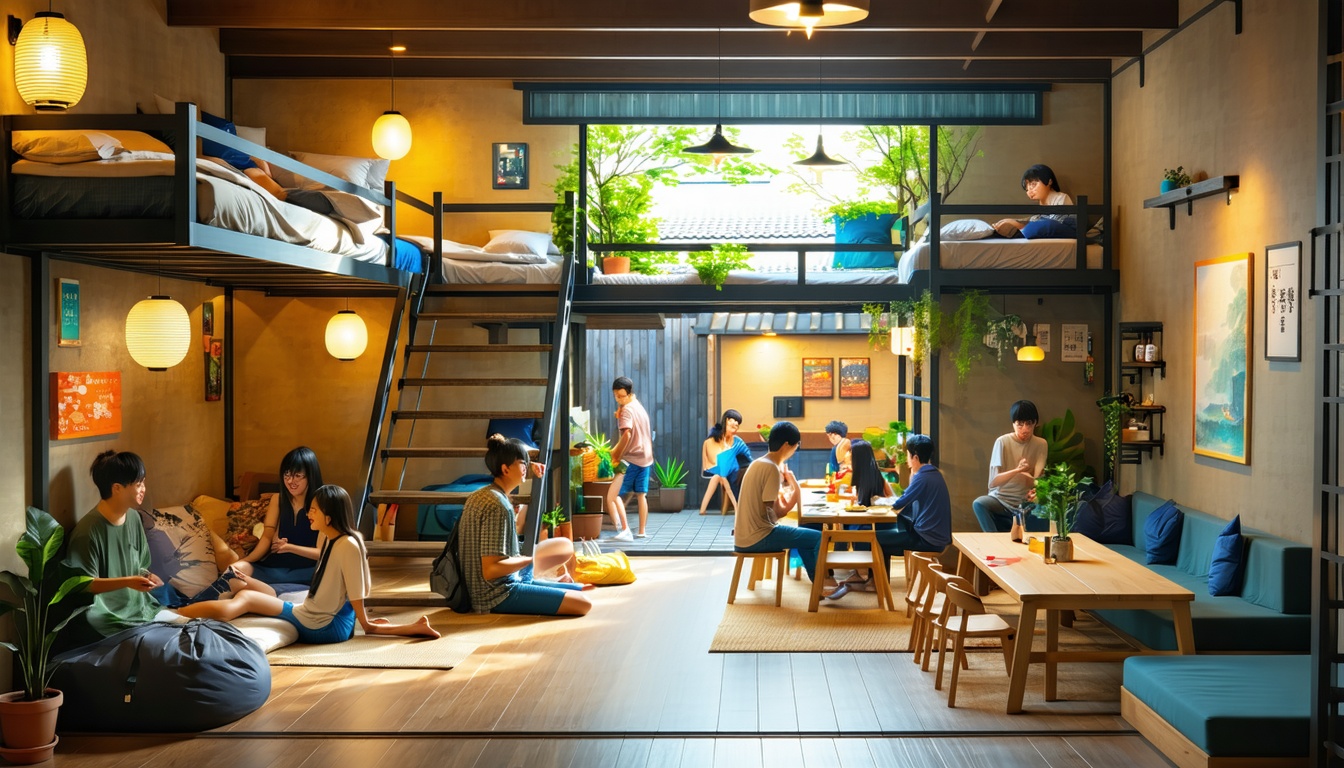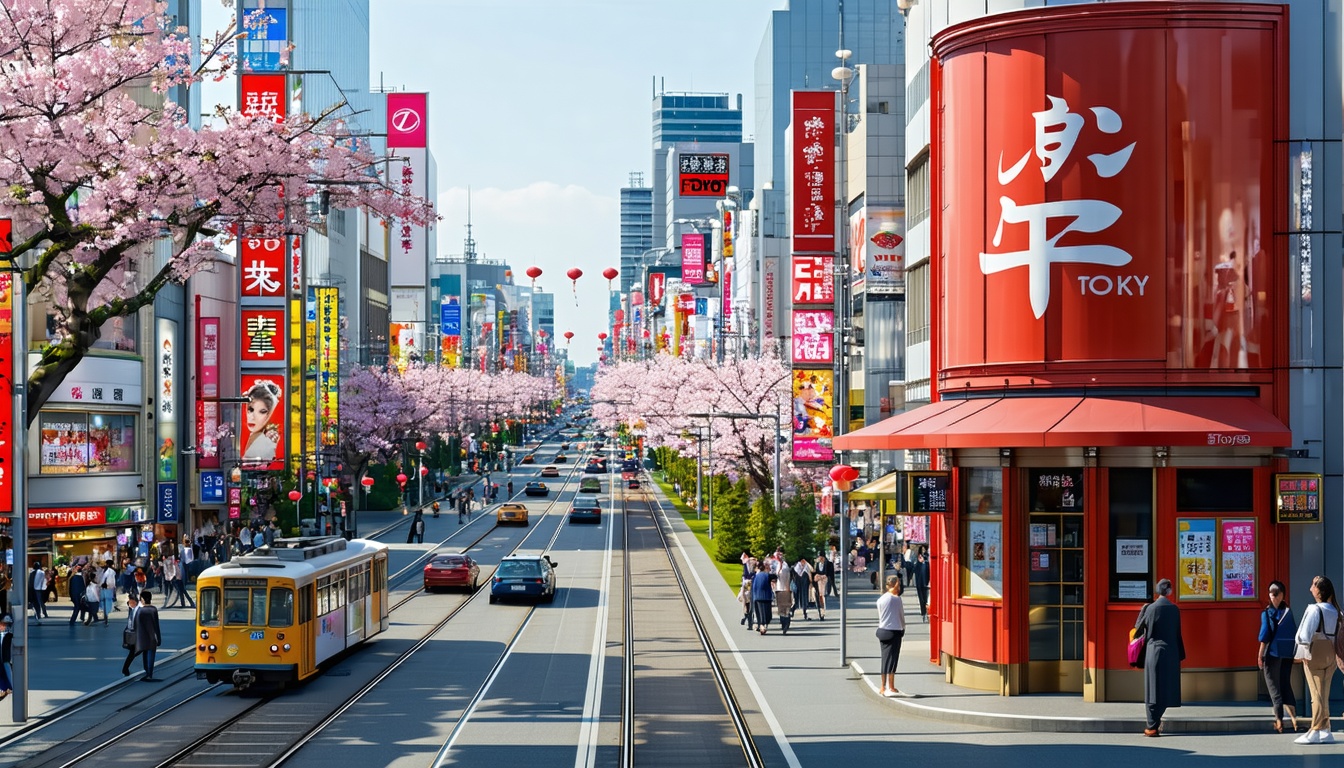Top Tokyo Accommodation Types That Save You Time and Money

Picture this: You’ve just arrived at Tokyo Station jet-lagged and eager to charge into Shibuya’s neon buzz. You need a place that’s steps from the rails, won’t break the bank, and gets you exploring fast. In this ultimate guide you’ll find the top tokyo accommodation types that keep you close to the train lines, save you money, and let you dive straight into the city’s best sights.
Whether you’re a backpacker, a family on a budget, or a culture hunter, we’ll walk you through hostels, capsule hotels, business stays, traditional inns, and more.
Why station access lodging
Staying near a train station in Tokyo is a game changer. You’ll cut down on taxi fares, avoid navigating city buses your first day, and be just minutes away from the shops, temples, or nightlife you came for. Plus, stations often double as malls and food halls, so you can grab a quick snack or last-minute souvenir without veering off course.
Here are the key benefits:
-
Save time on transfers, elevators, and long walks
-
Lower transport costs by tapping into Tokyo’s extensive rail network
-
Enjoy convenience stores, restaurants, and lockers inside most stations
-
Feel safer traveling late since trains run until around midnight
Compare lodging types
Tokyo’s station access lodging comes in all shapes and sizes. The table below breaks down the main tokyo accommodation types, with price ranges, room sizes, and who they suit best.
Type Price range (yen) Room size Ideal for Station proximity Learn more
Budget hostels 2,000–5,000 Shared dorms Backpackers, solo 1–5 min walk budget hostels near stations
Capsule hotels 3,000–5,000 1.2×2×1 m Solo travelers 1–3 min walk capsule hotels in Tokyo
Business hotels 7,000–12,000 10–15 m² Business trips Often attached business hotels near stations
Ryokan 30,000–50,000 30–40 m² Families, couples 10–15 min walk traditional ryokan in Tokyo
Minshuku 6,000–10,000 10–15 m² Budget families 5–10 min walk traditional Japanese accommodation
Shukubo 5,000–15,000 10–20 m² Cultural seekers Varies by temple traditional Japanese accommodation
Love hotels 5,000–10,000 15–25 m² Couples 2–5 min walk love hotels in Tokyo
Airbnb rentals 8,000–20,000 Varies Families, groups Depends on listing airbnb regulations in Tokyo
Explore budget hostels
Budget hostels in Tokyo go for around 2,000 to 5,000 yen a night. You’ll sleep in shared dorm rooms with bunk beds, lockers, and often a mix of solo and mixed-gender dorms. Many hostels also offer private rooms if you crave a bit more privacy.
Looking to meet fellow travelers? Hostels are social hubs where you can swap tips over free breakfast or join a group tour. Most are within a five-minute walk of major lines, so you won’t waste time hauling your backpack across town.
Pros and cons:
-
- Super affordable, often include free amenities like Wi-Fi and communal kitchens
-
- Meet people fast which is great for solo adventures
-
– Shared bathrooms can get busy during peak hours
-
– Noise levels vary, so pack earplugs
Try capsule hotels
Capsule hotels charge between 3,000 and 5,000 yen per night, making them an ultra-compact but private option for solo travelers (Japan-Guide). Standard capsules measure around 1.2 meters wide, two meters long, and one meter high, stacked two high with basic amenities built in (Japan-Guide).
You’ll find power outlets, reading lights, a small TV, and free Wi-Fi inside each unit. Then step out into shared facilities like showers, lounges, and often a communal onsen-style bath.
Capsule hotel tips:
-
Pack light since storage is limited under the capsule
-
Opt for gender-segregated floors if you’d rather avoid mixed crowds
-
Book in advance during peak travel seasons like Golden Week
-
Use the digital kiosks or English check-in guides if you’re new to the system
Book business hotels
Business hotels are the backbone of Tokyo’s lodging scene. Rooms cost about 7,000 to 12,000 yen a night and feature compact 10 to 15 m² layouts with a bed, desk, en suite bathroom, and basic amenities. Many chains are directly connected to stations or just a quick elevator ride from the ticket gates.
You’ll enjoy reliable Wi-Fi, a small vending machine corner, laundry services, and a lobby café. Breakfast is usually a simple buffet or grab-and-go set.
Insider business hotel hacks:
-
Sign up for membership programs for free upgrades or early check-in
-
Choose rooms away from the elevator for quieter nights
-
Compare rates on hotel booking websites Japan
-
Check out the Tokyo hotel amenities guide
Stay in a ryokan
Ryokan are traditional Japanese inns with tatami flooring, futon bedding, and kaiseki multi-course meals included in your room rate. A night in a ryokan typically costs US$300–400 per person including dinner and breakfast, making them more expensive than standard hotels (Japan Highlights). Rooms range from 30 to 40 m² and can fit 3–5 guests comfortably (Japan Highlights).
Most Tokyo ryokan sit a 10 to 15 minute walk from the nearest station, so plan a bit of extra time if you’re rushing to catch a train.
What to expect at a ryokan:
-
Yukata gowns and slippers in your room, with rules on where to wear them (Japan Travel)
-
Shared or private onsen-style baths, following a strict soak-and-clean etiquette
-
Staff visits for meal service and bedding setup
-
A serene, minimalist room design that soothes jet lag
Consider minshuku and shukubo
Minshuku are family-run guesthouses that strip back some ryokan bells and whistles. You’ll get a Japanese-style room with futon, shared bathrooms, and often a home-cooked meal. Prices sit around 6,000 to 10,000 yen per night (Snow Monkey Resorts).
Shukubo, or temple lodgings, take you inside Buddhist temples and Shinto shrines. You can join morning prayers, eat vegetarian shojin ryori meals, and learn monastery life. Rates range from 5,000 to 15,000 yen and station access varies by temple location (Snow Monkey Resorts).
Choosing minshuku or shukubo:
-
Decide if shared facilities and communal dining suit your style
-
Book ahead for limited temple rooms during festival seasons
-
Pack modest clothing and follow simple temple etiquette
Check out love hotels
Love hotels cater to couples seeking privacy for a few hours or an overnight stay. Prices run between 5,000 and 10,000 yen, with rooms booked by the hour or night. You’ll find quirky themes, mood lighting, karaoke systems, and room service options.
Most love hotels sit near entertainment districts and train stations, making them surprisingly easy to book even last minute. Want to crash in a bubble-themed suite after a late concert? Love hotels have you covered.
Love hotel tips:
-
Use online booking apps to view room themes and avoid walk-in surprises
-
Check in on weekends early to snag better rates
-
Respect the no-photography rule in lobbies
Use Airbnb alternatives
Airbnb rentals can feel like a mini apartment with kitchen space, multiple bedrooms, and washing machines. Prices vary widely from 8,000 to 20,000 yen per night based on location and size.
Keep Tokyo’s regulations in mind if you’re considering an apartment stay. Many hosts follow strict laws requiring short-stay licenses, so always confirm legality before booking (airbnb regulations in Tokyo).
Airbnb booking pointers:
-
Filter by “entire place” and “near train station” to narrow down options
-
Read the cancellation policy carefully for long stays
-
Message hosts in advance to confirm check-in logistics
Get booking tips
Snagging the best station access lodging means timing and comparison. Tokyo’s peak travel windows are cherry blossom season (late March to early April) and autumn foliage (November), so book at least two months ahead if you can.
Quick booking hacks:
-
Compare prices on hotel booking websites Japan
-
Check Tokyo hotel price comparison tools for real-time deals
-
Read recent Tokyo accommodation reviews to avoid surprises
-
Filter your search by “station proximity” or “walking distance” on platforms
-
Consider weekday stays to unlock lower rates
Plan your next steps
With this guide in hand you’re ready to book a station access lodging that matches your vibe and budget. Start by choosing your preferred type, then lock in dates—especially if you’re traveling during festivals or holidays. Once you’ve made a reservation, check out the best areas to stay Tokyo for neighborhood tips.
Happy planning, and enjoy every train ride, ramen stand, and hidden temple along the way.
Frequently asked questions
What are the cheapest Tokyo accommodation types near stations? Hostels and capsule hotels usually top the list at around 2,000 to 5,000 yen per night. Look for dorm options if you really want to cut costs.
Are capsule hotels suitable for tall or claustrophobic travelers? Capsules measure roughly 1.2 x 2 x 1 meters, so if you’re over 6 feet tall or need more headroom, a budget hostel or business hotel might be a better fit.
How far is too far from a station? Aim for under a 10-minute walk. Any more and you’ll start counting sidewalks instead of sightseeing spots.
Do business hotels include breakfast? Many do offer a simple buffet or set menu in the lobby for an extra fee. Always check amenities on the booking page or ask at reception.
How do I handle tattoos at public bathing facilities? Some capsules and ryokan ban tattoos in shared baths. Look for private rental baths (kashikiriburo) or temples that permit tattoos, or cover up with a waterproof bandage.


